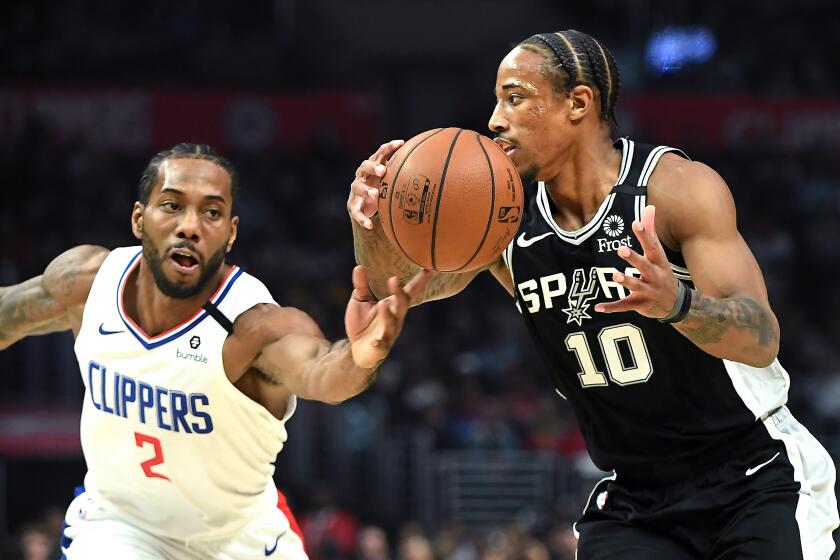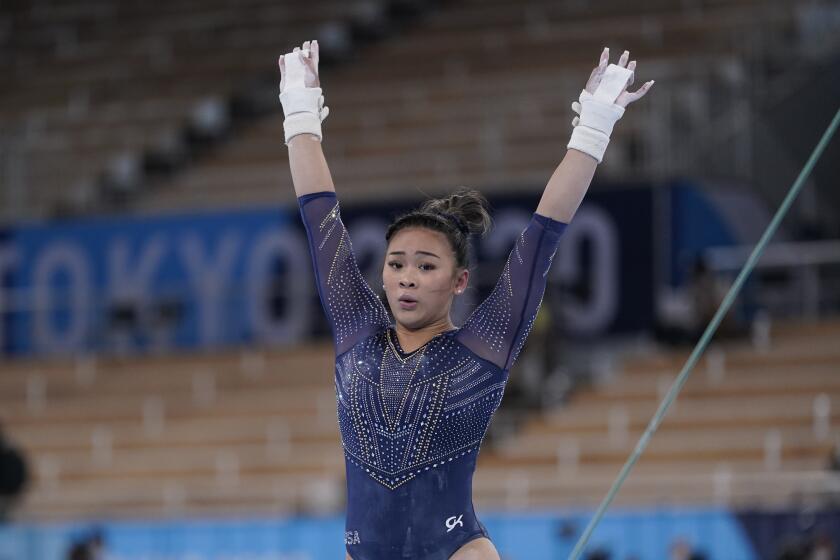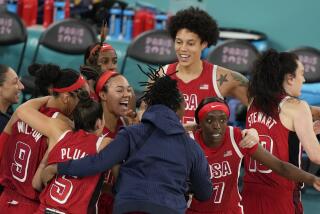U.S. dominance in Olympic basketball isn’t a given, and the coaches know it
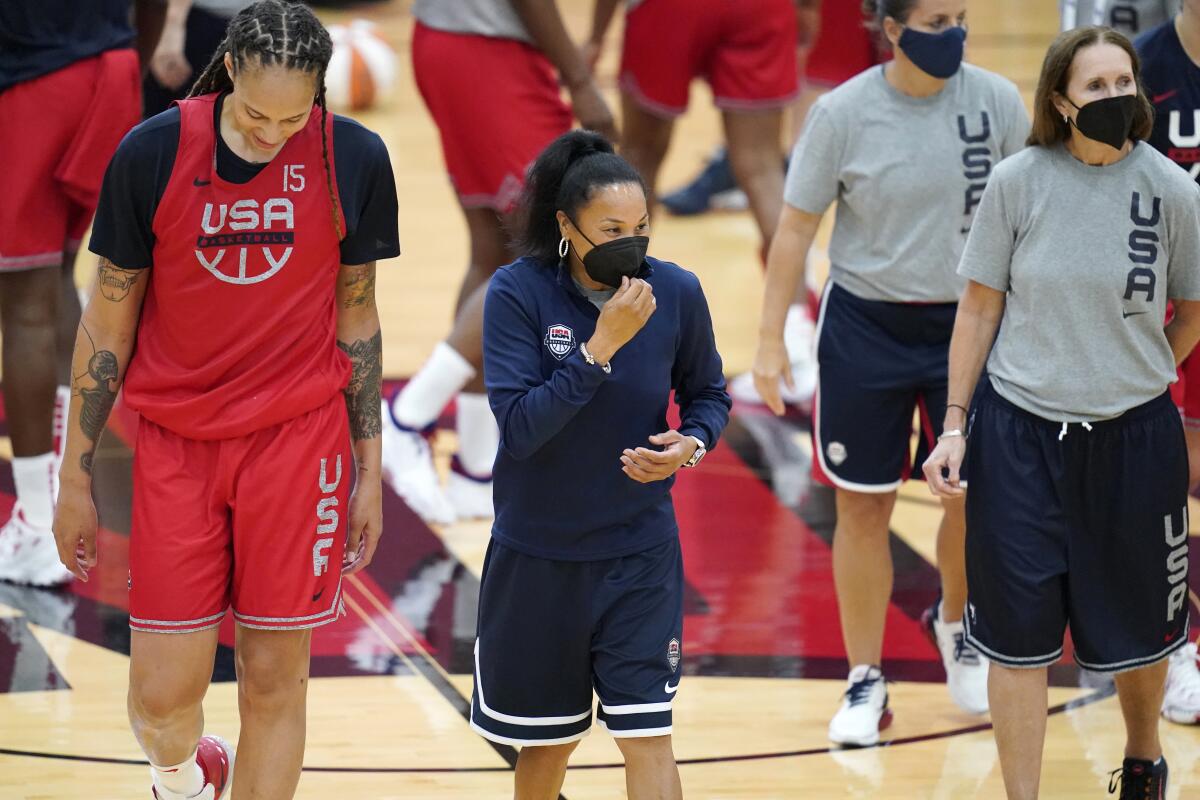
- Share via
SAITAMA, Japan — It was Dawn Staley’s turn.
Just like Gregg Popovich, her counterpart on the bench for the American men’s basketball team, did at the start of the Olympics, Staley rejected the notion that U.S. victories should look easy.
The women’s 93-82 win over France looked like it was supposed to, even if that meant there were plenty of tense moments into the fourth quarter.
“Does everyone want us to come out and blow everybody out?” Staley asked. “Some people do. They feel like that is supposed to happen. Well, for us, we know we’re in a dogfight every time we step on the court. To even think that, it’s a disservice to women’s basketball and you really haven’t been watching.”
The Clippers have some tough decisions to make with no cap space and plenty of roster spots open, including that of Kawhi Leonard.
It hasn’t looked particularly easy for either the men or the women in these Olympics. The men lost their opener to France after struggling in their pre-tournament exhibitions. The women also lost before the Olympics, though they’ve managed to end group play undefeated.
Both enter the knockout phase of the Olympics this week, with the men playing Spain on Tuesday in what could easily be a tight game between two teams incredibly familiar with each other.
The women will play Australia — which beat them in an exhibition on July 16 — in the quarterfinals on Wednesday.
You don’t need to strain to see what Staley and Popovich have spoken about, the challenges their respective teams face in the hunt for gold and the potential vulnerabilities in their teams.
With the U.S. men, it’s fairly obvious. The team was put together but didn’t get time to come together, the NBA Finals keeping Jrue Holiday, Khris Middleton and Devin Booker from training until arriving in Japan.
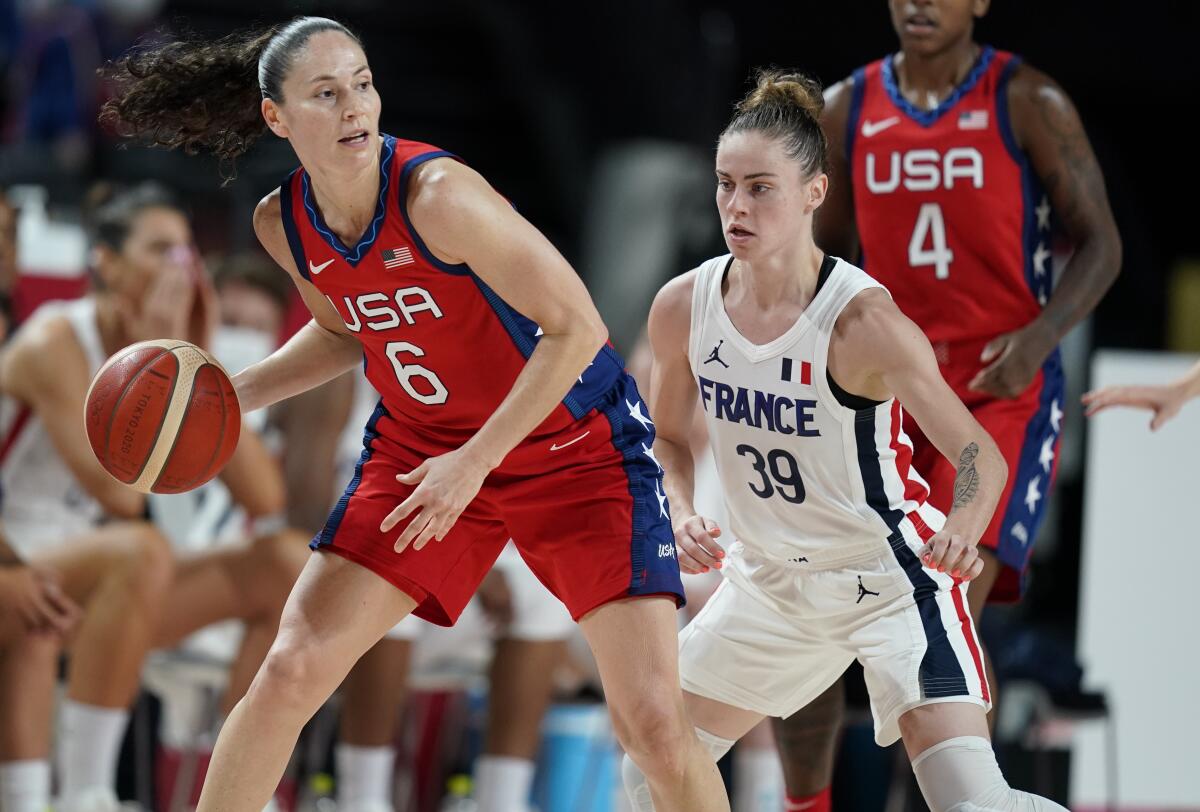
Of the three, Holiday has played the best, moving into the starting lineup and being the team’s point-of-attack defender. He’ll likely track Ricky Rubio against Spain, with the NBA veteran averaging 21.3 points and 7.3 assists.
“It fits,” he said when asked about his skills translating to international play. “I feel like I’m here to assist. I’m here to rebound. I’m here to make plays for other people.”
Then there’s the issue of the size of the U.S. players, an aspect the Czech Republic targeted in their game with the U.S. on Saturday. France has a proven track record of success against them (they’re on the other side of the bracket) and could be an issue for the Americans in the medal round.
If the U.S. can beat Spain, they’ll play the winner of Australia-Argentina, the Australians having already beaten the Americans during this exhibition cycle.
“This Olympics is just going to get better as far as basketball teams,” Popovich said, aware of the difficult games ahead.
A bronze medal in the uneven bars final on Sunday completed Suni Lee’s set of Tokyo Olympic hardware.
The wild card moving forward could be Damian Lillard, expected to be one of the best players on the American team. Lillard has struggled to shoot the ball, hitting only 37.1% from the field during pool play. Progression to the mean would be welcome news for the American offense, which has been inconsistent during the opening rounds.
The U.S. women should probably feel a little safer — although the talent gap between them and world has narrowed, their lead has been much wider than in the men’s field.
The team hasn’t lost in Olympic play since 1992, generations of players leading them to gold after gold. Veterans such as Sue Bird, Diana Taurasi and Sylvia Fowles have been through multiple Olympic cycles.
So have Breanna Stewart and Tina Charles, key pieces in helping the U.S. hold off the French women Monday ahead of the quarterfinals.
“There’s room for improvement,” Staley said. “And I’m encouraged by the improvement to really lock down at this moment.”
And she has to be encouraged by A’ja Wilson, the WNBA’s reigning MVP, who has looked like the most dominant player in the tournament for the Americans. Her 20.3 points per game are third-most in pool play and tops on the U.S. team.
“I can’t say enough about A’ja Wilson and the way that she’s performing and just stepping up into who she is as a player and as a woman,” Charles said.
The world has clearly gotten better, the margins between the American teams and their competition ever-shrinking. But none of that can be an excuse.
“We didn’t come here for anything less than than a gold medal,” Zach LaVine said.
More to Read
Go beyond the scoreboard
Get the latest on L.A.'s teams in the daily Sports Report newsletter.
You may occasionally receive promotional content from the Los Angeles Times.

